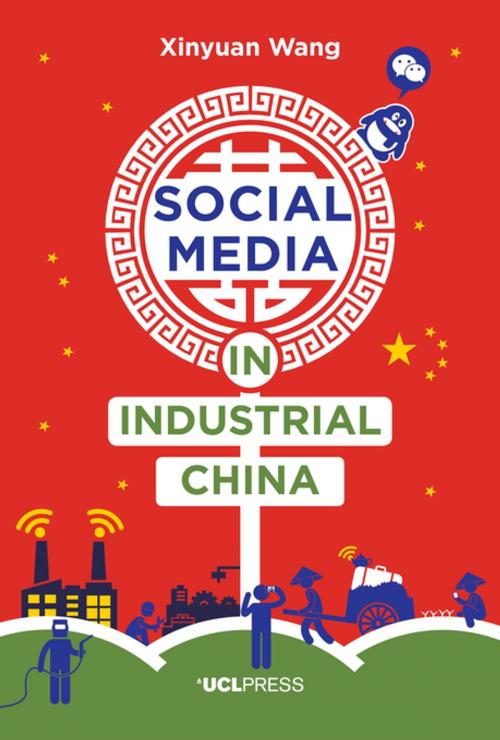Social Media in Industrial China
Nonfiction, Social & Cultural Studies, Social Science, Anthropology, Computers, Internet| Author: | Xinyuan Wang | ISBN: | 9781910634653 |
| Publisher: | UCL Press | Publication: | September 13, 2016 |
| Imprint: | UCL Press | Language: | English |
| Author: | Xinyuan Wang |
| ISBN: | 9781910634653 |
| Publisher: | UCL Press |
| Publication: | September 13, 2016 |
| Imprint: | UCL Press |
| Language: | English |
‘Life outside the mobile phone is unbearable.’ Lily, 19, factory worker
Described as the biggest migration in human history, an estimated 250 million Chinese people have left their villages in recent decades to live and work in urban areas. Xinyuan Wang spent 15 months living among a community of these migrants in a small factory town in southeast China to track their use of social media. It was here she witnessed a second migration taking place: a movement from offline to online. As Wang argues, this is not simply a convenient analogy but represents the convergence of two phenomena as profound and consequential as each other, where the online world now provides a home for the migrant workers who feel otherwise ‘homeless’.
Wang’s fascinating study explores the full range of preconceptions commonly held about Chinese people – their relationship with education, with family, with politics, with ‘home’ – and argues why, for this vast population, it is time to reassess what we think we know about contemporary China and the evolving role of social media.
Praise for Social Media in Industrial China
'This is a wonderful book that opens a window on the life world of millions of migrant workers in China. It addresses one of the most important topics in contemporary communication and media studies, i.e. the impact of social media on the way people manage their social interactions with family members and peers.'
- Material Religion: The Journal of Objects, Art and Belief
*'*The two freely accessible books [Social Media in Industrial China and Social Media in Rural China] are conceived as introductions for the public at large, theoretical references being deliberately kept limited and relegated to the last parts. They offer the generalist reader very vivid and contextualised descriptions of social media usages in two very different milieus in China, but perhaps leave the more specialist readers craving more in terms of theoretical discussions and overviews of existing literature. They nevertheless represent an invitation to read the works of synthesis stemming from this collective research project, which ought to meet the demand for more theoretical generalisations'
China Perspectives
‘Life outside the mobile phone is unbearable.’ Lily, 19, factory worker
Described as the biggest migration in human history, an estimated 250 million Chinese people have left their villages in recent decades to live and work in urban areas. Xinyuan Wang spent 15 months living among a community of these migrants in a small factory town in southeast China to track their use of social media. It was here she witnessed a second migration taking place: a movement from offline to online. As Wang argues, this is not simply a convenient analogy but represents the convergence of two phenomena as profound and consequential as each other, where the online world now provides a home for the migrant workers who feel otherwise ‘homeless’.
Wang’s fascinating study explores the full range of preconceptions commonly held about Chinese people – their relationship with education, with family, with politics, with ‘home’ – and argues why, for this vast population, it is time to reassess what we think we know about contemporary China and the evolving role of social media.
Praise for Social Media in Industrial China
'This is a wonderful book that opens a window on the life world of millions of migrant workers in China. It addresses one of the most important topics in contemporary communication and media studies, i.e. the impact of social media on the way people manage their social interactions with family members and peers.'
- Material Religion: The Journal of Objects, Art and Belief
*'*The two freely accessible books [Social Media in Industrial China and Social Media in Rural China] are conceived as introductions for the public at large, theoretical references being deliberately kept limited and relegated to the last parts. They offer the generalist reader very vivid and contextualised descriptions of social media usages in two very different milieus in China, but perhaps leave the more specialist readers craving more in terms of theoretical discussions and overviews of existing literature. They nevertheless represent an invitation to read the works of synthesis stemming from this collective research project, which ought to meet the demand for more theoretical generalisations'
China Perspectives















